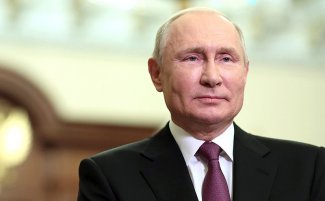Putin and Lukashenka discuss the options of further integration

The presidents of Russia and Belarus, Vladimir Putin and Alyaksandr Lukashenka met for the fifth time this year in Moscow on 9 September. They discussed the implementation of the schedule for the integration of Belarus and Russia as part of the 28 Union State programmes, the assessment of the situation in Afghanistan, and military cooperation. At a joint press conference, both leaders announced that, once the texts of the integration agreements have been adopted by the governments of both countries, they would be officially signed at a meeting of the Supreme Council of the Union State. It was initially arranged that this council will meet at the end of October. This means that it may not meet at the agreed time. The issues covered by the programmes include industrial and agricultural policy, tax harmonisation, financial and loan policy, labour law, customs cooperation and the creation of a single payment area. Lukashenka announced that the documents that have thus far been classified would be presented to the public. It was agreed during the meeting that the gas price for Belarus in 2022 would remain at the same level (US$128.5 per 1000 m3), and it was declared that a document on the creation of a common gas market within the Union State would be signed by 1 December 2023. They also declared their willingness to create a common market for crude oil and petroleum products, as well as an agreement on a common electricity market. Putin declared that by the end of 2022 Belarus would receive a loan of US$600–640 million. Security issues were also raised in conjunction with the plans to create a “common defence space of the Republic of Belarus and the Russian Federation”.
Commentary
- The meeting in Moscow was to a large extent an attempt to maintain the conviction that the integration of the two countries would proceed smoothly. However, it was not really groundbreaking for bilateral relations. The parties confirmed that, following further agreements at the government level, it was possible to approve 28 programmes for partial integration in the economic and financial spheres. However, their implementation, even if the documents are signed quickly, will take some time – until 2025–2027. However, quick political integration involving the creation of supranational bodies and a common parliament or financial integration is not being considered – the adoption of the common monetary system has been postponed.
- The symbolic aspect of integration is important for Moscow and Minsk. Putin, just before the parliamentary elections scheduled for 19 September and the 30th anniversary of the collapse of the USSR in December this year, presented the completion of the first stage of integration with Belarus as a success (in fact, largely virtual). It is also a sign that Russia will continue to strive for economic and military integration of a section of the former Soviet area.
- The most important issues for the Minsk regime, namely low prices of Russian oil, gas and modern weapons, will be negotiated separately, and are not formally linked to the integration programmes. Thus, Russia has kept the most effective tools at its disposal, i.e. determining the prices of energy supplies. This means it may curb Lukashenka’s potential ambitions to pursue a policy independent of Moscow.
- The time of the meeting was correlated with the commencement of the active phase of the Zapad-2021 exercises. The intention was to emphasise the importance of bilateral military cooperation and its impact on maintaining Belarus’s military dependence on Russia. The announcement of the creation of a “common defence space” suggests that Minsk has agreed to continue efforts to ultimately integrate the armed forces of the Republic of Belarus with the Russian army. This may also mean its acceptance of the possible rotational presence of Russian troops in Belarus.
- Russia will continue to financially support the Minsk regime, though this support will be increasingly limited. The international isolation of Belarus makes it easier for Russia to force it to accept Russian conditions and solutions in bilateral relations. This does not mean, however, that Lukashenka will abandon the tactic of selectively delaying integration processes, which he has made use of for many years. Furthermore, he will be waiting for an improvement of Belarus’s political situation and will make the implementation of the integration processes dependent on further financial support from Russia.




